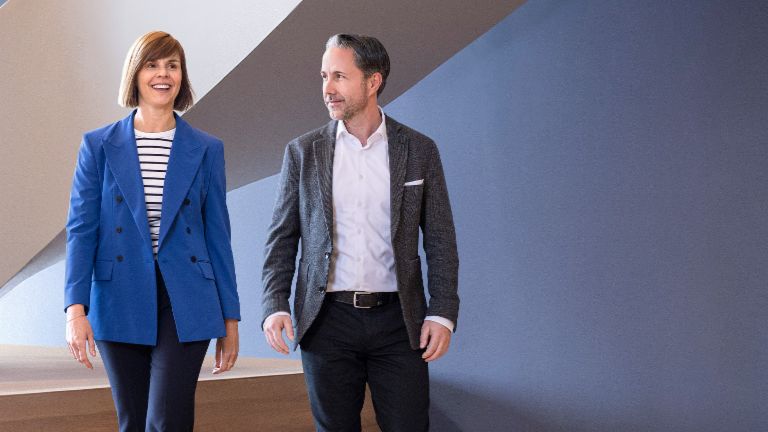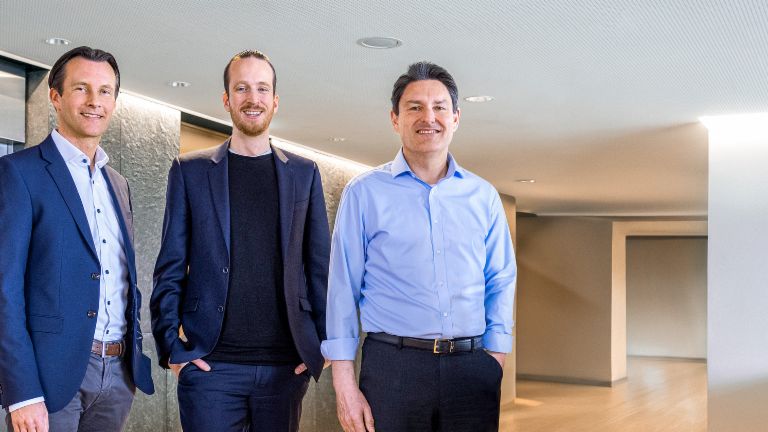Why we are not a start-up.
Start-ups are unduly idealized, says Klaus Engberding, CEO of the EOS Group: those responsible for a lot of people have to find a point of difference.
As CEO, you shouldn't say that these days, however I don’t want to have a pure start-up mentality at EOS. At least, not in all the characteristics I associate with that.
Yes, I value many of the qualities attributed to start-ups. Agility, entrepreneurship, simply trying things out, being allowed to make mistakes. We want to have this culture at the EOS Group because that creates the dynamism we need. Decisions have to be made where the people have the most expertise, which is not necessarily at management level. The world is changing too quickly for that.
A company like EOS defines itself by means of a viable business model. Many start-ups, on the other hand, prefer to define themselves through their technical expertise. Questions such as “Is there also a relevant problem for this solution?” or “Is anyone prepared to pay for my solution?” are asked too late or sometimes not at all. And the founders are not always as familiar with the markets that they want to revolutionize as they need to be.

Not every start-up founder is a paragon.
We at EOS forego certain freedoms that are a matter of course for a start-up. Above all, the freedom to do everything – and also to leave things be. This freedom has long been celebrated unreservedly, however, more critical voices are now being heard. Because this culture supports not only innovators.
For us as a sustainable company, it goes without saying that all stakeholders benefit from the company’s success. Shareholders and investors through returns, the workforce through secure jobs, managers through long-term incentive structures. By contrast, the stakeholders in start-ups participate above all in the risk. If the company fails, the employees lose their jobs, the investors lose their investment – and the founders lose the opportunity to realize their vision.
This pressure drives them to seek the next round of funding time and again, to tout their solutions as a ‘disruption’ time and again – sometimes against their better judgement, driven only by hope. And sometimes they also seek a profitable exit with the money of others, without their own risk.
The fact that 99% of all start-ups fail may be acceptable for venture capitalists. They still get their returns with a few high achievers. For me as an entrepreneur, a success rate of one percent is no paradigm. Our aspiration at EOS is that innovations work and they do so in a stable economic framework. This is another thing that sets us apart from start-ups: our innovation teams do not have the next round of funding at the back of their minds. This means their agility or risk-taking is not impaired. But they must not oversell their work.

True disruptions are few and far between.
A good friend of mine is a venture capitalist. I really enjoy going through with him the business plans of start-ups that he receives. My personal rule of thumb here is: if we halve the sales forecast and double the estimated costs, it must still break even. I am interested in founders who accept this challenge.
I have more difficulty with those who announce enthusiastically that they are going to revolutionize an industry. Just because I pair an existing business with AI, blockchain or another hyped-up technology, this does not mean I automatically have a product advantage or a disruption.
How we apply start-up thinking.
When we see new trends or technologies that could change our business, we ask ourselves three questions that a start-up should also ask:
1. Does this provide a solution to a customer’s problem?
2. Is it better than the existing solutions?
3. Will anyone pay for this new solution?
In order to answer these questions quickly, we put together interdisciplinary teams who help us make an informed assessment. As an example, we looked into Bitcoin for the first time five years ago. It was clear to us that it would not quickly become a relevant means of payment. With blockchain, however, we are convinced that we have a technology on hand that offers huge potential for forgery-proof documentation that is also transparent and conforms to data protection regulations – and that is what we are working on.
The word ‘disruption’ does not come into it. Then again, we are no start-up.
Photo Credits: Jann Klee / EOS, Sebastian Vollmert / EOS
Explore more from EOS



